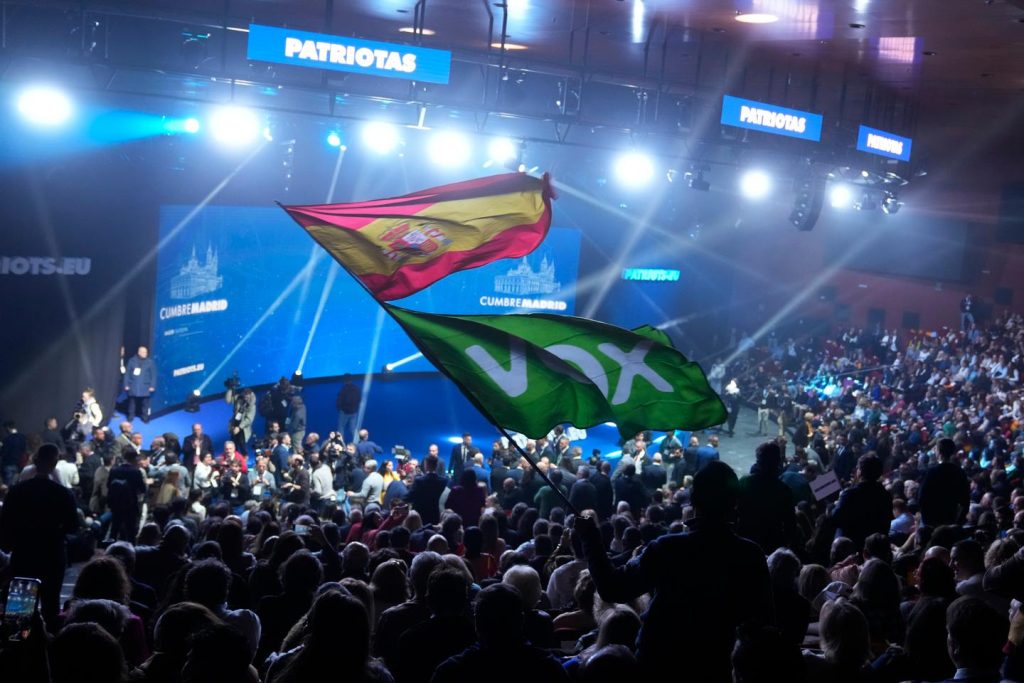The Rise of "Make Europe Great Again"
In the second half of 2024, Hungary, under the leadership of Prime Minister Viktor Orbán, assumed the rotating presidency of the European Union. Orbán, known for his conservative and nationalist policies, used this opportunity to launch a provocative challenge to the continent: "Make Europe Great Again" (MEGA), a slogan inspired by Donald Trump’s "Make America Great Again" (MAGA) movement. This call to action was not just a nod to Trump’s influence but also a rallying cry for European far-right leaders who gathered in Madrid on February 8 for the "Summit of Patriots for Europe." The event, hosted by the Spanish far-right party Vox, marked a significant moment in the growing alignment between European populism and Trumpism. The timing of the summit was no coincidence; it coincided with the triumphant return of Donald Trump to the political stage, signaling a potential shift in the global political landscape.
The summit brought together prominent far-right leaders, including Marine Le Pen of France’s National Rally (RN), Matteo Salvini of Italy’s League, and Geert Wilders of the Netherlands, among others. These leaders, who have long been critical of the European Union’s policies on immigration, multiculturalism, and environmental regulation, saw the event as an opportunity to amplify their voices and project a united front. The atmosphere was electric, with many attendees expressing optimism about the future of their movement. For them, the "Reconquista" (a term used by several leaders) had begun—a metaphorical and ideological battle to reclaim Europe from what they perceive as the forces of globalism, liberalism, and cultural decline.
Embracing the Trumpist Ideological Alignment
The Madrid summit was more than just a meeting of like-minded politicians; it was a symbolic embrace of Trumpism and its associated ideologies. Donald Trump, who has been a polarizing figure in global politics, has undeniably inspired a wave of populist and nationalist movements across Europe. His message of restoring national sovereignty, curbing immigration, and challenging elites resonates deeply with leaders like Orbán, Le Pen, and Salvini. The summit was, in many ways, a European sequel to Trump’s MAGA movement, with MEGA serving as its continental echo.
The event also highlighted the growing transatlantic ties between European far-right leaders and their American counterparts. Trump’s influence was palpable, even in his absence. His recent return to the White House has emboldened European populists, who see his victory as a sign that their time has come. Javier Milei, the libertarian president of Argentina, added to the momentum by sending a video message of support to the summit, further cementing the idea of a global "reactive" movement against progressive values. For many at the summit, the message was clear: the tides of history were shifting in their favor, and Europe was primed for a conservative resurgence.
Unity and Discord Among Far-Right Leaders
While the summit showcased the unity of purpose among far-right leaders, it also revealed underlying tensions and contradictions. On the surface, there was consensus on several key issues: opposition to immigration, rejection of Islam, skepticism toward environmental policies like the European Green Deal, and a shared disdain for "wokism" and multiculturalism. These themes have long been the backbone of the far-right agenda, and they continue to resonate with their base. However, beneath this veneer of unity lay points of disagreement that highlighted the complexity of the movement.
One notable area of discord was Orbán’s outright criticism of European support for Ukraine in its conflict with Russia, which he described as a "hopeless war." While Orbán’s stance was not surprising given Hungary’s historical ties with Russia, it was a sensitive issue for other leaders, who chose to avoid it altogether. Similarly, Santiago Abascal of Vox expressed support for Alice Weidel of the far-right Alternative for Germany (AFD), but this stance was not universally embraced, as many in the European Parliament view the AFD as toxic. Trump’s own policies, such as his proposed tariffs on Europe, his controversial stance on Palestine, and his demands for increased defense spending by European nations, were also conspicuously absent from the discussions. These omissions underscored the challenges of building a cohesive alliance when the interests and priorities of member states and leaders often diverge.
The ideological Ambiguities of the Far-Right Coalition
The Madrid summit also revealed the ideological ambiguities of the far-right coalition. While the leaders sought to project a united front, their individual priorities and strategies often clashed. Marine Le Pen, for instance, avoided delving into Trump’s libertarian economic vision, which she likely saw as incompatible with her own more statist approach. Such disagreements highlighted the tension between economic nationalism and free-market ideals within the movement.
Moreover, the summit raised questions about the broader implications of this emerging alliance. As European centrists, such as Friedrich Merz of Germany’s Christian Democratic Union, consider controversial alliances with far-right parties, the line between mainstream conservatism and extremism continues to blur. The "Summit of Patriots" thus served as a reminder of the discomfort that such associations provoke, both within Europe and beyond. By aligning themselves with Trump’s MAGA movement, these leaders risk being tied to its most radical excesses, even as they seek to carve out their own distinct identities.
The Role of International Influences
The influence of international figures like Trump and Milei at the summit underscored the global nature of the far-right movement. Trump’s return to power in the United States has galvanized his ideological allies in Europe, who see his success as a blueprint for their own struggles. Similarly, Milei’s libertarian crusade in Argentina has inspired European populists who view him as a kindred spirit in the fight against progressive governance. These transatlantic and transcontinental connections highlight the growing interconnectedness of far-right movements worldwide.
For European leaders like Orbán, the support of international figures legitimizes their cause and strengthens their












